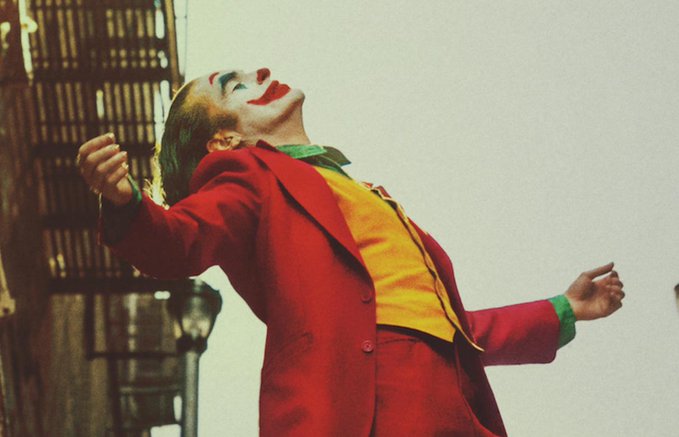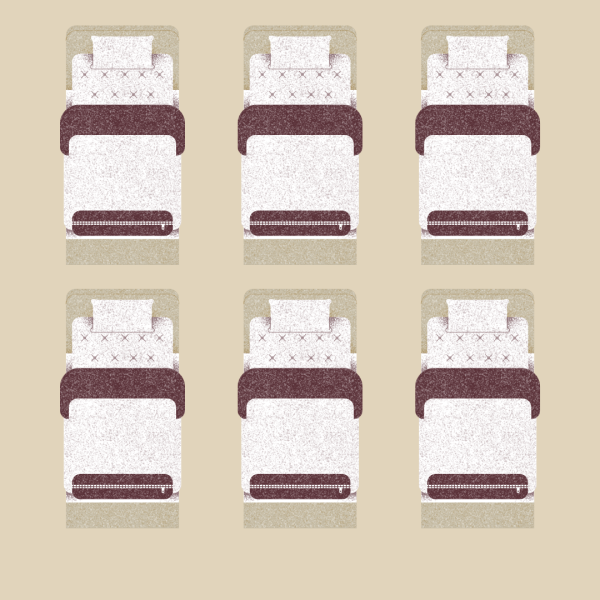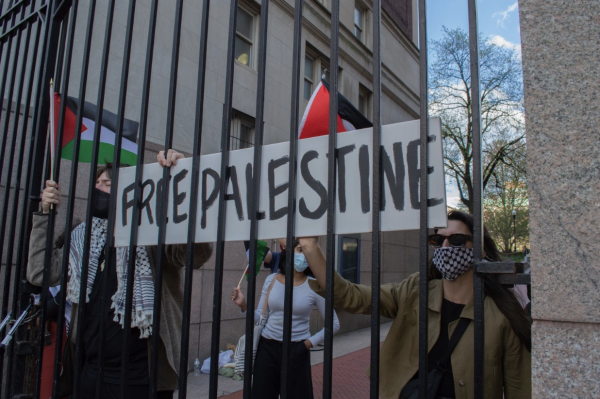This Outrage Over “Joker” Is a Bad Joke
Last weekend, I went to see Todd Phillips’ “Joker,” an origin story for Gotham City’s Crown Prince of Crime. I spent the preceding days religiously avoiding any spoilers for the film, leaving only the scenes from the two trailers fresh in my memory.
Normally, I would go to see a film I planned on reviewing by myself, to get the full experience of the film without a friend’s emotions to influence my thoughts. But this weekend, both my father and my brother accompanied me to see “Joker” — not just because they wanted to, but because they were under instruction from my mother to “make sure I was safe.” While I understand her worry, I disagree with the reasoning behind it.
“Joker,” a comic-book movie first and foremost, had gained the attention of a group of people called “incels.” An “incel” (the term is short for “involuntarily celibate”) is a man that feels they are too awkward or unattractive to get attention from or sexual access to the opposite sex. Some incels are harmless, taking to Reddit subthreads to discuss how to overcome their social anxiety and approach women they are romantically interested in.
But some incels take their insecurities and frustrations out on the world in the form of violence.
Spoilers for the film from here on, by the way, for those that do not want their experience tarnished.
“What do you get when you cross a mentally ill loner with a society that abandons him? You get what you deserve,” Arthur Fleck, a.k.a. the Joker, says as he shoots a man point-blank on live television.
For obvious reasons, many fear that this film will awaken violent urges in certain men. It certainly does not help that there is a new group of incels referring to themselves as “clowncels” (a direct reference to the Joker’s clownish visage).
But here is my issue with this logic: At no point does “Joker” glorify any of Arthur Fleck’s actions.
Yes, the film does humanize the Joker, but it does so perfectly. As you follow protagonist Arthur, you see his daily struggle with his mental illness, a condition in which his body forces him to laugh at any moment, sometimes enough to physically harm his throat (and yes, this is a real condition). You see his strange social mannerisms and how everyone around him is painfully aware of how odd Arthur truly is. You even see Arthur take one interaction with a woman in an elevator and escalate it into a full romance that only takes place in his mind.
But when Arthur confronts the woman in her apartment, the film does not blame her for being kind to Arthur. It does not try to justify Arthur’s actions, stalking the woman to her job, following her throughout the day. It does not expect you to root for the Joker.
Nor does this film ask you to. It instead invites you to see where Arthur went wrong, and more importantly, where Gotham — and society at large — went wrong.
Throughout the film’s narrative, people in Arthur’s life do not recognize his mental illness. On two occasions, his inopportune laughter leads to two separate groups of men physically assaulting him. At work, one of his coworkers hands Arthur a gun, which Arthur specifically tells him he is not allowed to have. His city-assigned psychiatrist tells him halfway through the film that Gotham has cut their funding, that not only will Arthur be without a therapist, but he will have to continue without the seven different medications he is currently on.
“What do you get when you cross a mentally ill loner with a society that abandons him?” People are focusing too much on “mentally ill loner” and not enough on “society.”
There are so many points in the movie where Arthur’s life could have been different. If he hadn’t been given the gun, he wouldn’t have been able to kill those men. If he hadn’t been denied his medication, he wouldn’t have started spiraling down. If Robert de Niro’s character, a late-night show host Arthur had admired for years, had not publicly mocked Arthur for his stand-up act, his transformation to the Joker might not have reached its conclusive stages. If his own mother hadn’t allowed Arthur to have been physically abused as a child, maybe his mental illness would never have come to pass.
Search online about the legitimacy of mental illness and you will find countless articles begging neurotypical people — those that do not experience atypical mental thoughts or patterns — to regard mental illnesses as seriously as physical illnesses.
In August, President Trump rolled back an Obama-era regulating bill that made it more challenging for mentally ill people to obtain firearms.
“Joker” offers a dialogue on the importance of mental health, and the dangers of ignoring mental illness.
When Arthur goes to visit the woman, one of the only people that shows him a moment of kindness, it is unclear if he hurts her or not. The audience does not see him attack her, but sirens can be heard as he leaves her apartment. The film makes it clear that here is where he has crossed the line. He has gone from shooting his attackers in self-defense to breaking into an innocent woman’s house because she had dared to exchange words with him in an elevator.
If this film is portraying Arthur as a kind of incel, which I do believe it is, it is doing the opposite of encouraging his behavior. It is showing how everyone and everything around him has led him to this point, and that he has crossed the line from misunderstood to malicious.
No man is born with the tendencies of an incel. He is made into one from the encouragement of other violent men, from the lack of care for his emotional state, from the harmful assertions of masculinity that have led him to believe he is entitled to the affections of women, regardless of their own emotions.
“I had a bad day,” Arthur says at one point — an homage to the famous graphic novel “The Killing Joke” where the Joker proclaims, “All it takes is one bad day to drive the sanest man to lunacy.”
But this film proves it isn’t just one bad day that turns the Arthurs of the world into the Jokers. It’s a lifetime of bad days.
Briana Scalia, FCRH ’20, is a journalism major from Long Island, N.Y.








fitoru • Jan 22, 2020 at 2:01 am
I enjoyed reading your story. Im looking forward to read more of your posts.